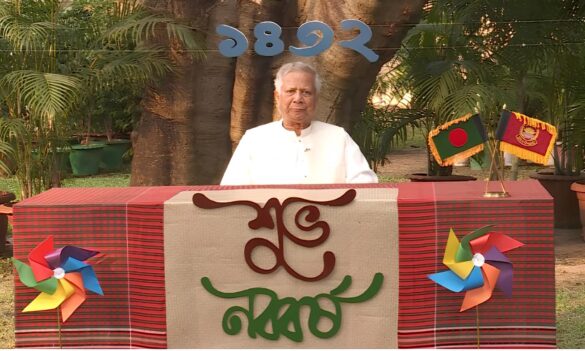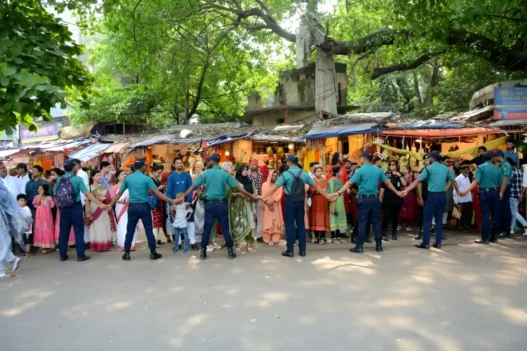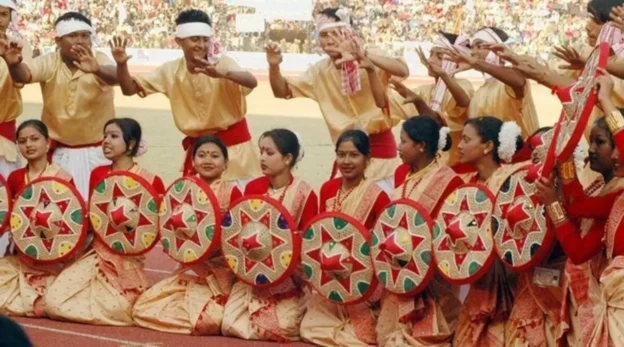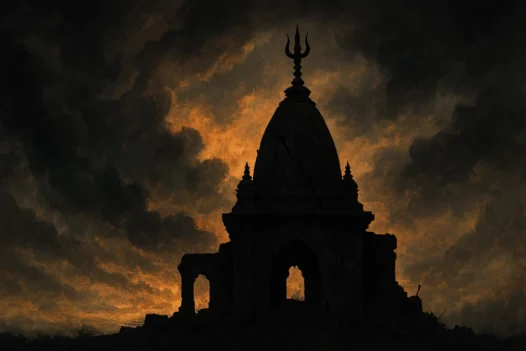As Meghalaya approaches its district council elections on February 21, 2025, a significant debate has emerged between two critical provisions of the Indian Constitution: Article 371 and the Sixth Schedule. For the first time, the issue of Article 371 has taken center stage in the election campaigns, raising questions about the future of tribal governance and autonomy in the state.
The district councils, established under the Sixth Schedule in 1952, were designed to safeguard the rights and customs of the tribal communities. Yet, the Voice of the People Party (VPP) has taken a bold stance, advocating for the implementation of Article 371, igniting a debate that has split political parties across the state.
The role of the Sixth Schedule in tribal governance
The Sixth Schedule of the Constitution of India has been a cornerstone of Meghalaya’s governance, ensuring that the tribal communities have a mechanism to safeguard their cultural, economic, and social rights. These provisions empower the district councils to legislate on matters such as land allotment, forest management, the appointment of chiefs, and the regulation of social customs. For decades, these councils have acted as the protectors of tribal identity, ensuring that the interests of indigenous people are prioritized.
In the upcoming elections, Meghalaya will vote for the Khasi Hills Autonomous District Council (KHADC) and the Jaintia Hills Autonomous District Council (JHADC), which will choose representatives for 29 out of 30 seats. The political atmosphere is charged with discussions about the future of tribal governance, and the role of the Sixth Schedule is under scrutiny like never before.
VPP’s push for Article 371
The VPP, a relatively new political force founded in 2021, has made a strong pitch for the implementation of Article 371 during its election campaign. VPP leaders, including party supremo Ardent Basaiawmoit, argue that while the Sixth Schedule provides significant powers to the district councils, it is ultimately limited by Paragraph 12A, which allows state laws to override the council’s regulations in the case of a conflict.
Basaiawmoit contends that Article 371 would grant Meghalaya even greater autonomy, ensuring that central laws cannot supersede the state’s tribal customs, land rights, or governance structures. The VPP chief’s argument has been that Article 371, which offers special provisions to states like Nagaland and Mizoram, would protect the state from any interference by the central government, especially in areas such as social customs, land ownership, and administrative affairs. Media reports also quote Basaiawmoit as saying that the provisions of 371 could help to resume rat hole mining in Meghalaya.
For the VPP, implementing Article 371 is seen as a necessary step to strengthen the authority of district councils and preserve the region’s indigenous identity.
The VPP has gained traction with this argument, especially among voters who are concerned about the erosion of local power. With its strong focus on protecting tribal rights and strengthening the district councils, the party has made waves in a state historically governed by the larger national parties, including the Congress and the United Democratic Party (UDP).
The opposition: Sixth Schedule is enough
However, the VPP’s push for Article 371 has sparked a counterargument from other political parties, including the UDP, Congress, and the BJP, all of which argue that the existing framework under the Sixth Schedule is sufficient to protect the rights of the tribal people. UDP leader and Meghalaya Tourism Minister Paul Lyngdoh argued that Article 371 and the Sixth Schedule cannot coexist in the same system. He pointed to Mizoram, where Article 371 applies statewide, except in the three Autonomous District Councils (ADCs), which are governed by a different set of provisions to protect the rights of non-Mizo tribals.
Veteran Congress leader Ronnie V. Lyngdoh echoed these sentiments, asserting that the Sixth Schedule already empowers district councils to safeguard the cultural and administrative rights of the indigenous people. Media reports quite him as raised a pertinent question which is, if Article 371 were more powerful than the Sixth Schedule, why would regions like Ladakh seek to introduce Sixth Schedule protections in their own governance system?
The BJP, a key ally of the NPP-led Meghalaya Democratic Alliance (MDA) government, also opposed the idea of replacing the Sixth Schedule with Article 371, stressing that the Sixth Schedule is the constitutional safeguard that enables district councils to maintain control over land, customs, and local administration.
A Turning Point in Tribal Politics
As the elections draw near, the debate over Article 371 versus the Sixth Schedule reflects broader concerns about the future of tribal autonomy in Meghalaya. The question is whether the existing provisions under the Sixth Schedule are enough to protect the cultural and political rights of the indigenous people, or if new measures like Article 371 are needed to strengthen tribal governance.
With 18 candidates in the fray and the political temperature rising, the outcome of the elections could reshape the landscape of tribal governance in Meghalaya. What is clear is that for the first time, the issue of Article 371 has become a central talking point in the fight for the future of the district councils, with each party drawing lines based on their vision for the state’s tribal future.
As Meghalaya’s district councils heads to the polls, the battle over tribal autonomy and governance will undoubtedly define the political narrative for years to come.







